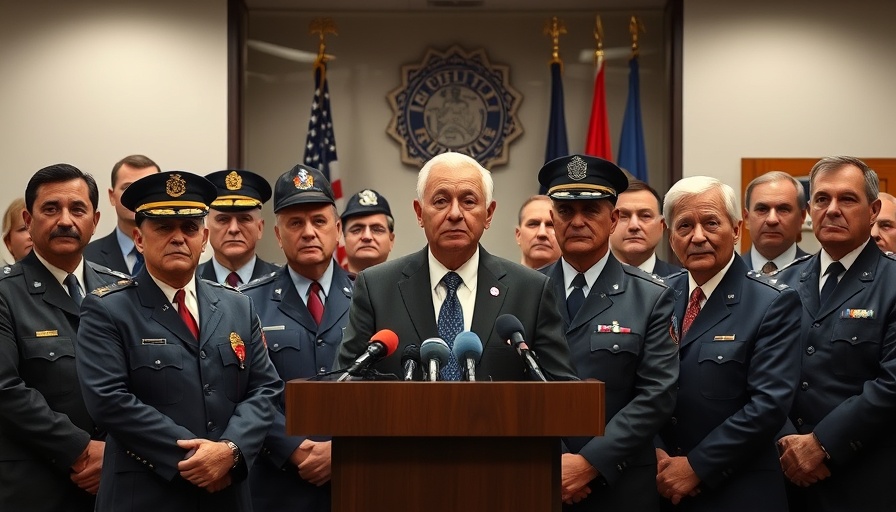
Massachusetts State Police Pledge to Elevate Accountability
In the aftermath of the highly publicized Karen Read trial, the Massachusetts State Police (MSP) are stepping up their game when it comes to accountability and training. Col. Geoffrey Noble addressed the public, stating, "The events of the last three years have challenged our department to thoroughly review our actions," highlighting the imperative for structural change in law enforcement.
A Case that Shook Public Trust
The recent trial surrounding Karen Read's involvement in the tragic death of officer John O'Keefe raised significant public concerns. While Read was acquitted of murder charges, she was convicted of operating under the influence—an outcome that underscores the complexities law enforcement faces when navigating cases involving their own. The MSP acknowledged the significance of public trust, a cornerstone of community policing, that has been battered by these events.
Commitment to Enhanced Investigative Training
To restore faith in their capabilities, MSP is spotlighting a comprehensive review of their training programs. The department has promised more focused investigative training and constructive oversight. Col. Noble emphasized, "We strive for excellent police services that reflect the value of professionalism," which resonates with the call for greater police accountability and transparency.
How Technology Can Bridge the Trust Gap
The integration of technology in law enforcement, including the use of body cameras and AI analytics, holds immense potential to bolster accountability. These tools provide key evidence during investigations and foster transparency within police activities. For instance, the advent of body cameras has already changed police-community dynamics by specifying what transpired during contentious interactions, helping to prevent misconduct and foster trust.
Public Safety: A Collaborative Effort
Public safety is not solely the responsibility of law enforcement but a community effort. Stakeholders, including local governments and citizens, must work hand-in-hand to create robust systems that address not just incidents of misconduct but also foster educational and training programs aimed at enhancing police-community relations. When community members understand their police force’s protocols and the rationale behind their actions, mutual respect flourishes, ultimately leading to safer neighborhoods.
A Look Ahead: Future Steps for Police Oversight
As the dust settles from the Read trial, the Massachusetts State Police are not just intent on reflecting but also on taking decisive actions moving forward. Upcoming changes in training may include workshops focusing on mental health resources for officers, aiming to enhance officer wellness and prevent burnout and its associated risks. Coupling this with initiatives aimed at recruiting diverse candidates with a community focus will help create a well-rounded police force better equipped to handle modern challenges.
The commitment by MSP is critical during these times where scrutiny of policing methods is at an all-time high. The pathway to accountability is multi-faceted, encompassing everything from technology integration to policy reform and communication with the communities they serve.
Engagement from all parties—law enforcement, government, and the community—is vital. There must be an ongoing dialogue to maintain the integrity and effectiveness of policing strategies. Each step taken toward transparency and better training reinforces the promise of higher standards.
 Add Row
Add Row  Add
Add 

 Add Element
Add Element  Add Row
Add Row 




Write A Comment